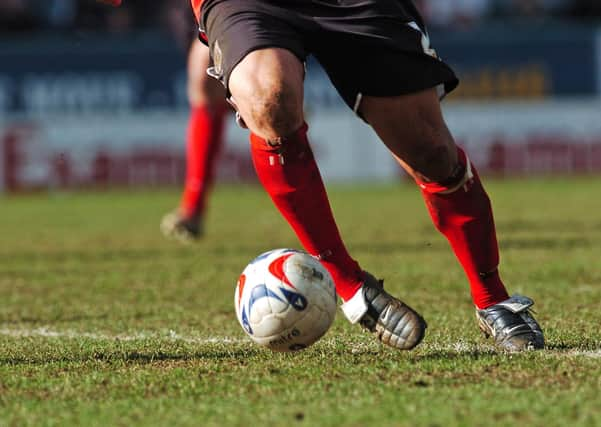New Government guidelines set out return of grassroots sport


The framework sets out the principles that sports must follow to enable the safe return of grassroots fixtures and games.
It will allow different households to participate in training and competitive matches while ensuring the risks of transmitting Covid-19 are minimised.
Advertisement
Hide AdAdvertisement
Hide AdIt lays the groundwork for recreational cricket to return on 11 July after the England and Wales Cricket Board submitted thorough plans for the sport’s safe return – with more sports set to follow.
Supporters will also be allowed to attend community fixtures in small numbers provided they are in groups of two households only, or no larger than six people from different households, and adhere to social distancing measures.
Sports Minister Nigel Huddleston said: “This is fantastic news for the millions of people who miss playing sport with their friends and teammates.
“This guidance sets out how community sport can be done safely, so many more sports can get going again.
Advertisement
Hide AdAdvertisement
Hide Ad“Sports Governing Bodies are now putting stringent measures in place so that the millions of people that play, officiate and volunteer can keep safe while enjoying all the benefits that grassroots sport brings.”
Each individual sport will submit to the government an action plan and related guidance, demonstrating its mitigations, how it plans to operate, and any adaptations required, before they can be approved to restart.
The action plans must recognise that the return of recreational sport may need to be paused in the event of a raised Covid-19 threat level either nationally or locally.
Measures in yesterday’s guidance include:
- Activity organisers should support track and trace efforts by collecting information on participants at both training and matches.
Advertisement
Hide AdAdvertisement
Hide Ad- All players, officials, volunteers and spectators must undergo a self-assessment for any Covid-19 symptoms. If they or anyone they live with has symptoms, they should not train, play or attend matches, and should instead self-isolate in line with public health guidance.
- Participants and spectators should minimise the use of public transport and car-sharing with anyone outside their household. They should instead walk or cycle to matches where they can.
- Clubs should strictly limit the time spent congregating at a venue before a match begins. Where possible, players should arrive changed and ready to warm up, limiting time spent waiting around or in changing rooms.
- All sports must adhere to social distancing throughout warm-ups and breaks in play, and avoid equipment sharing where possible. Players should also avoid unnecessary close contact such as handshakes or huddles.
Advertisement
Hide AdAdvertisement
Hide Ad- Sports where a single ball needs to be touched by multiple players, such as basketball, cricket and football, need to include in their action plans how they will reduce the risk of this transmitting the virus – for example by cleaning when it goes out of play.
- Club toilets will need to be opened for pre-match, during the match and for 30 minutes afterwards, but they must be cleaned regularly in line with public health guidance.
- Clubhouses and bars can be opened in line with government guidance on hospitality, with groups limited to six people.
Comment Guidelines
National World encourages reader discussion on our stories. User feedback, insights and back-and-forth exchanges add a rich layer of context to reporting. Please review our Community Guidelines before commenting.